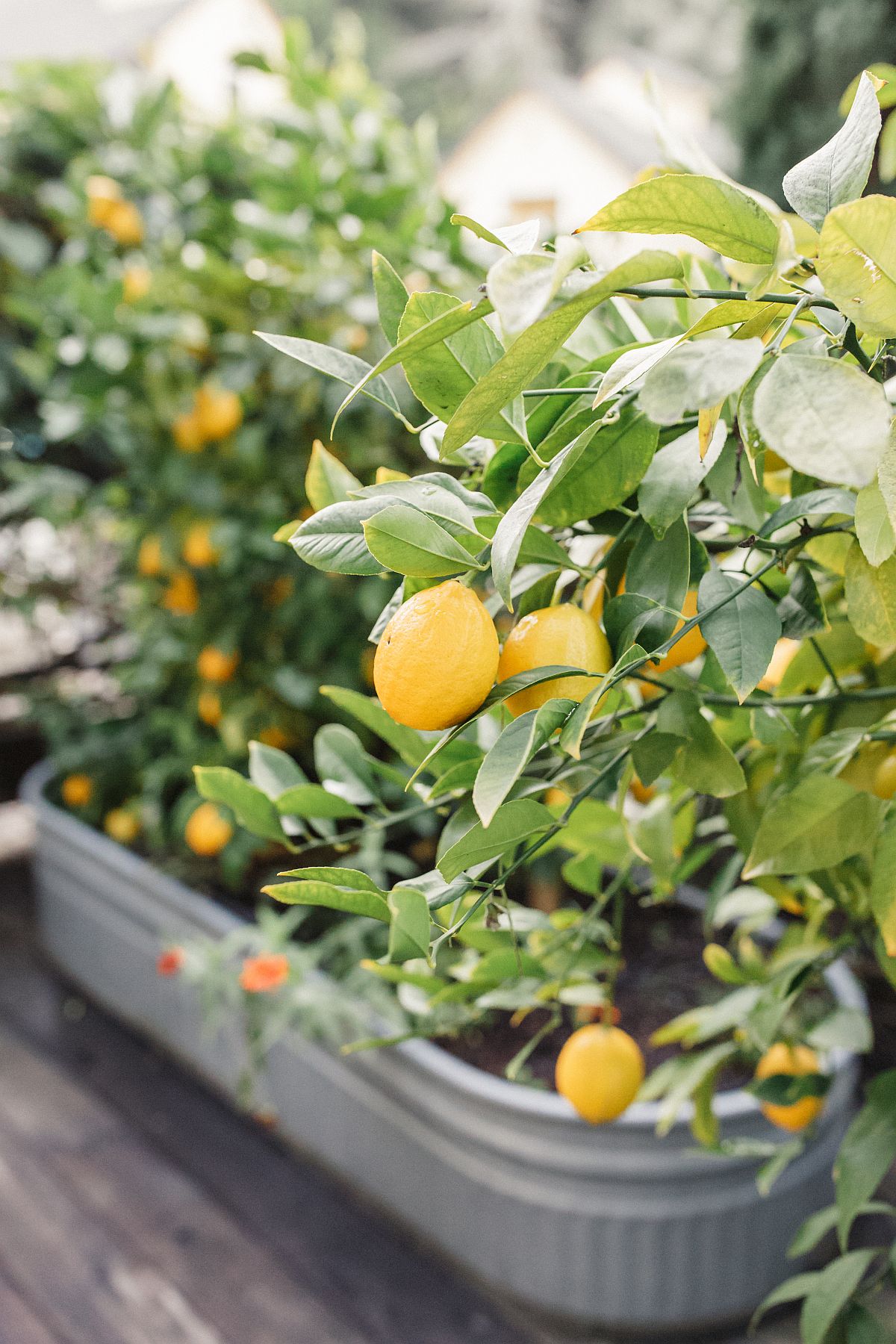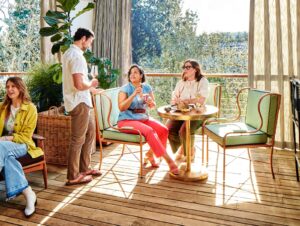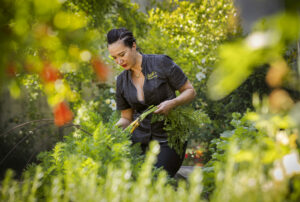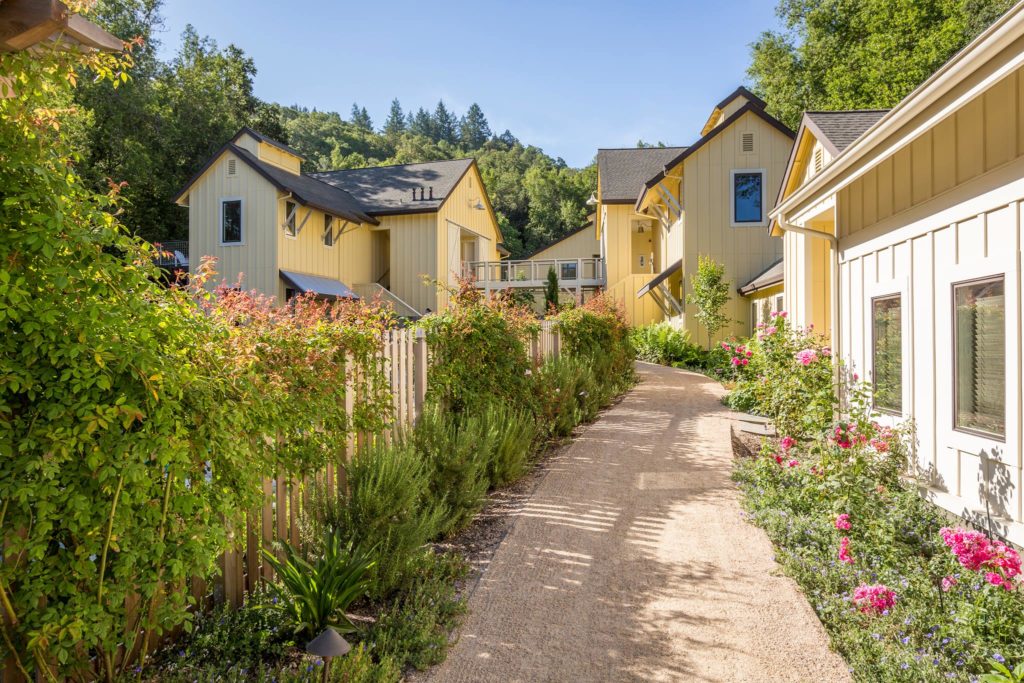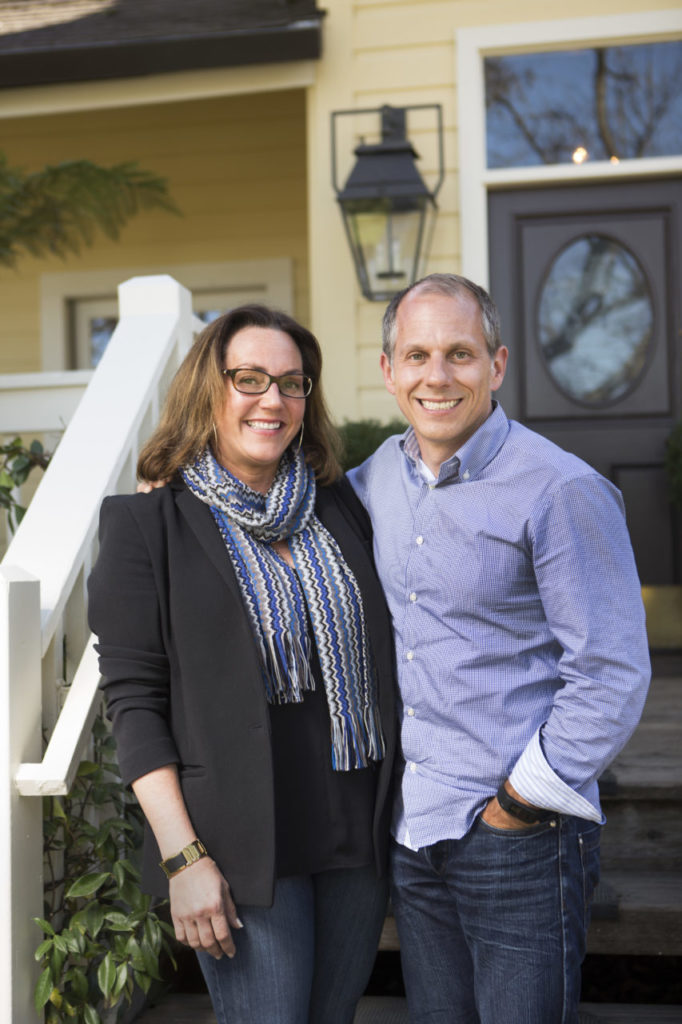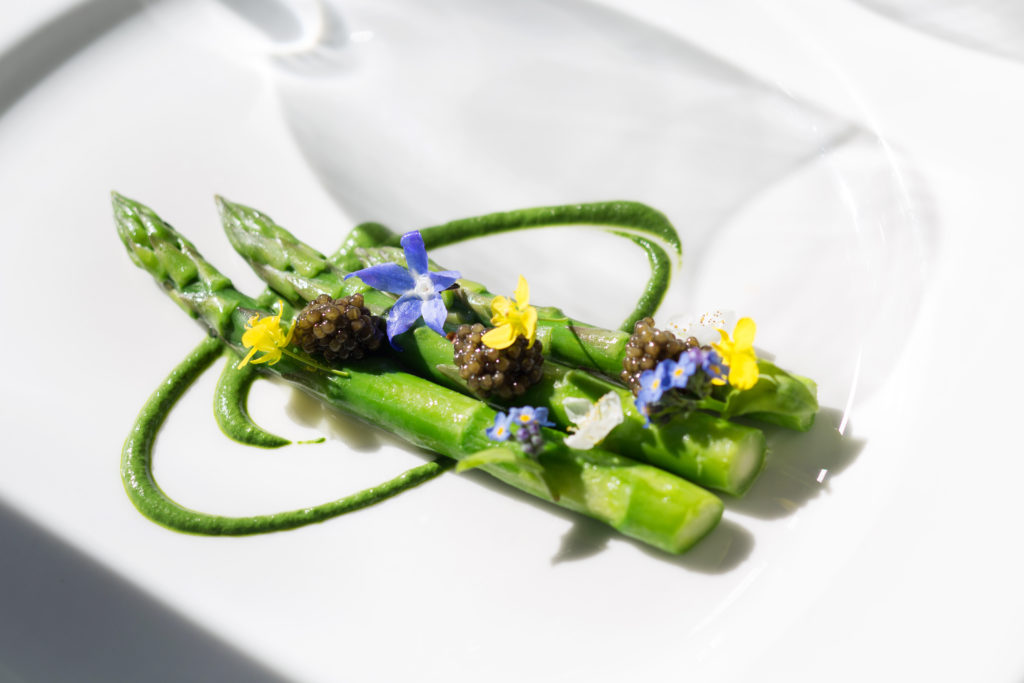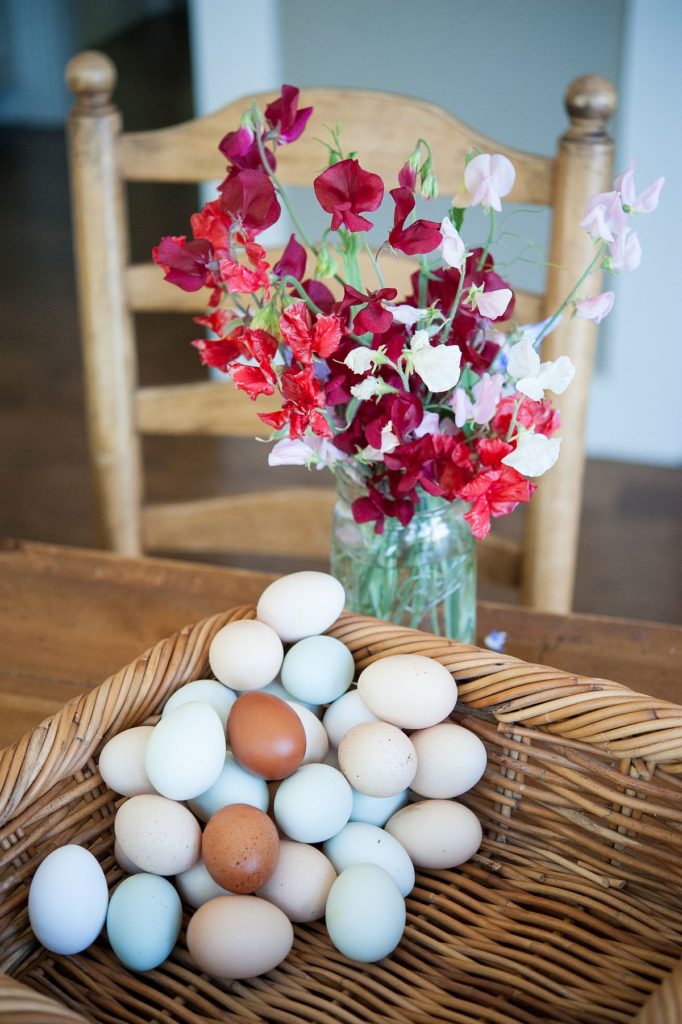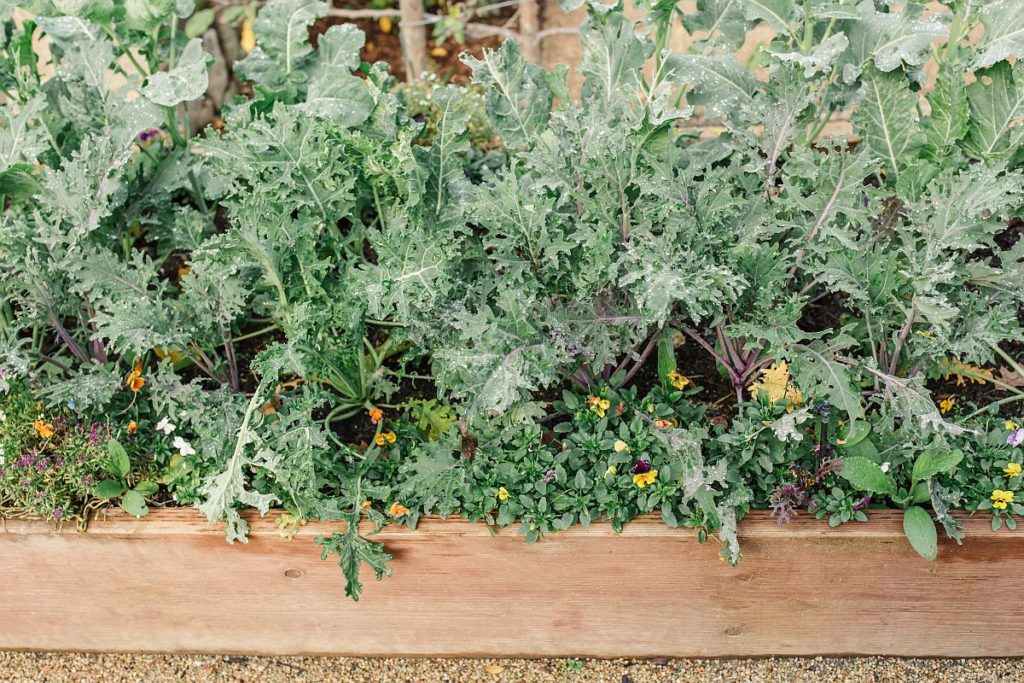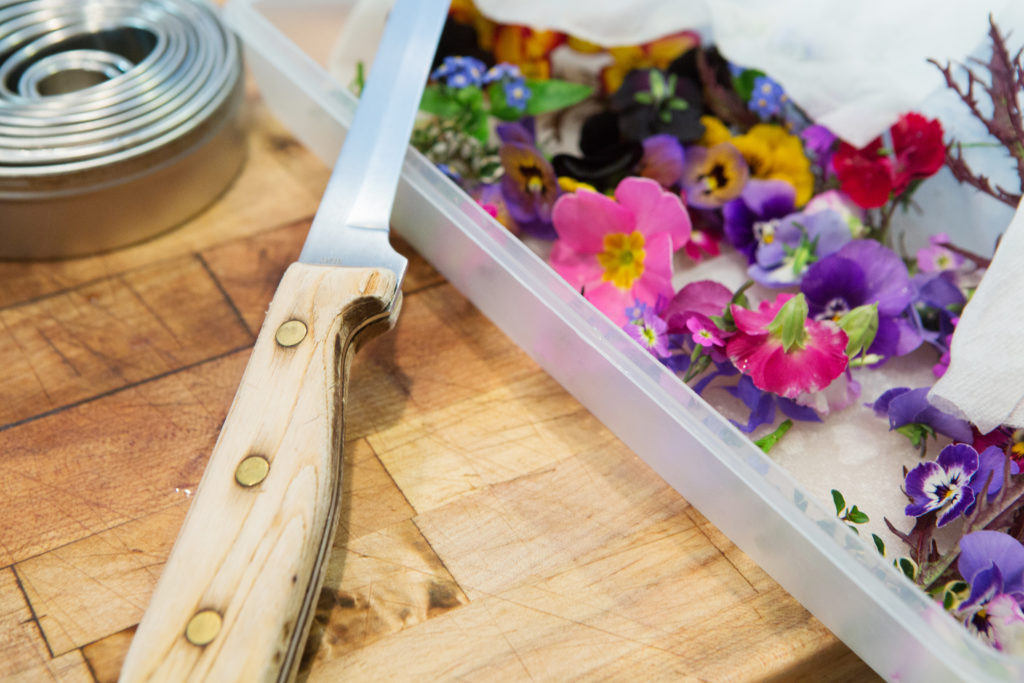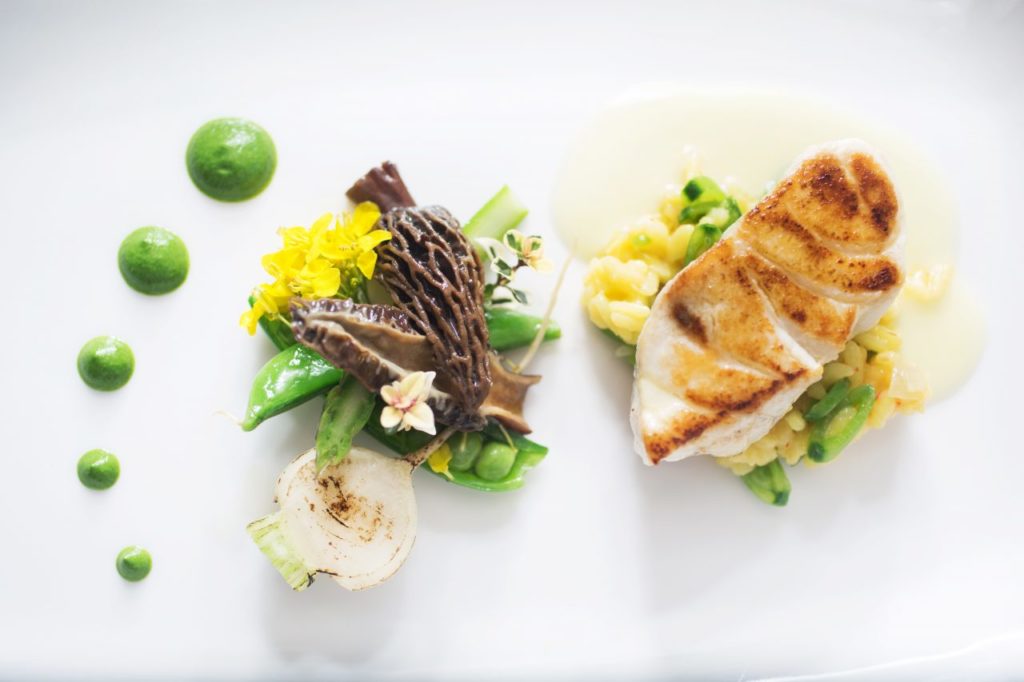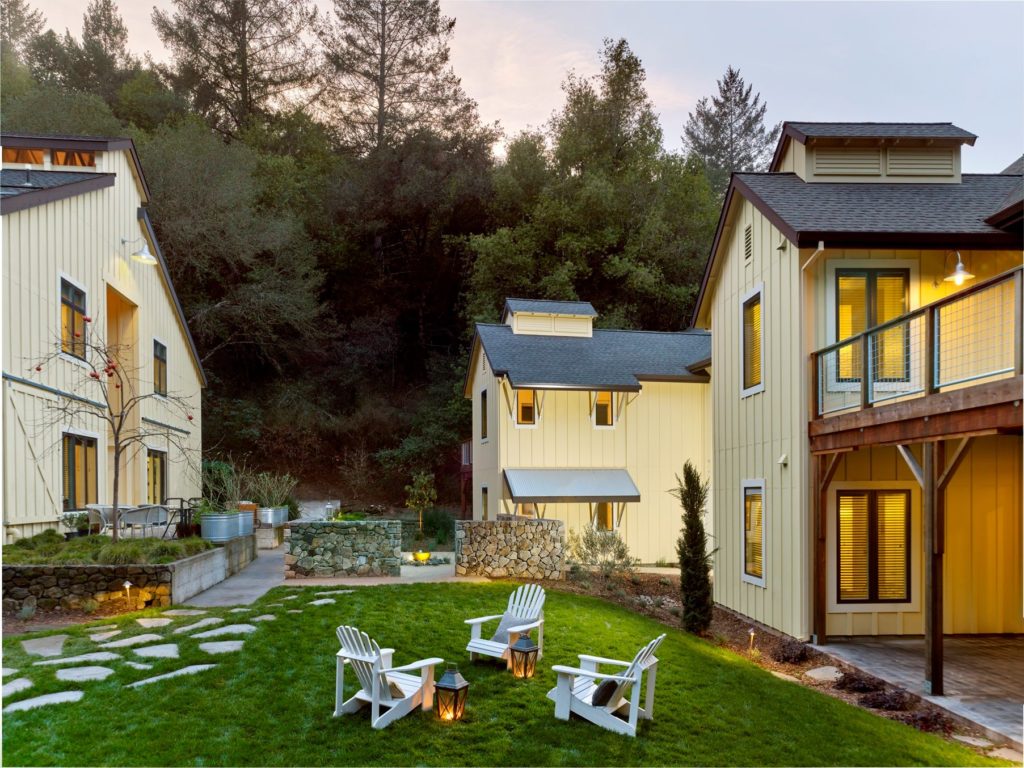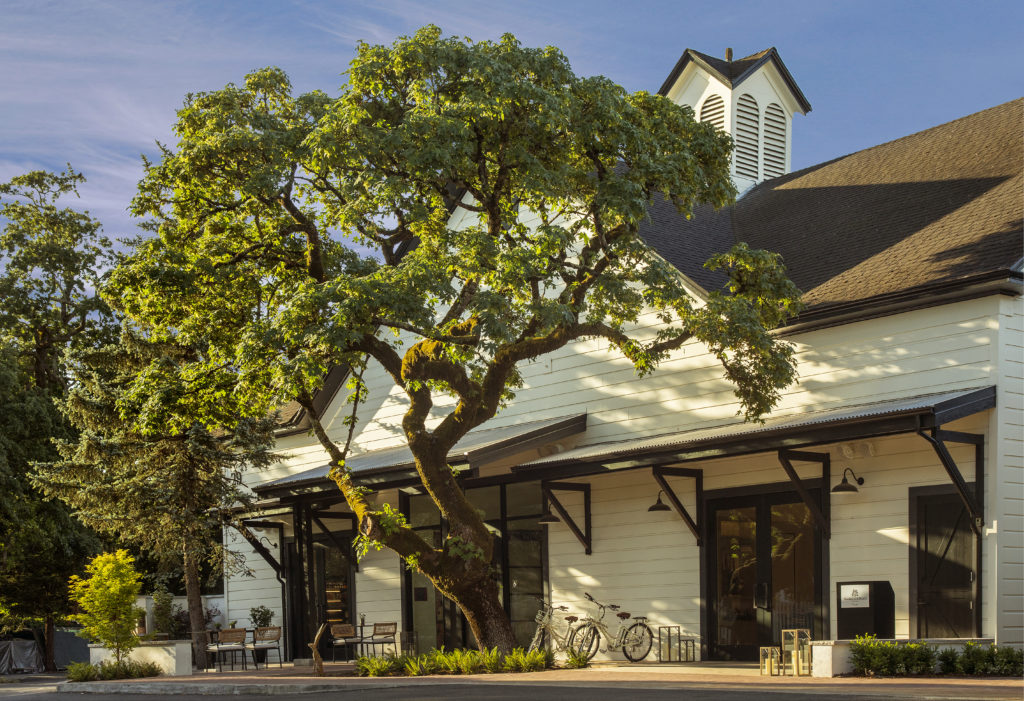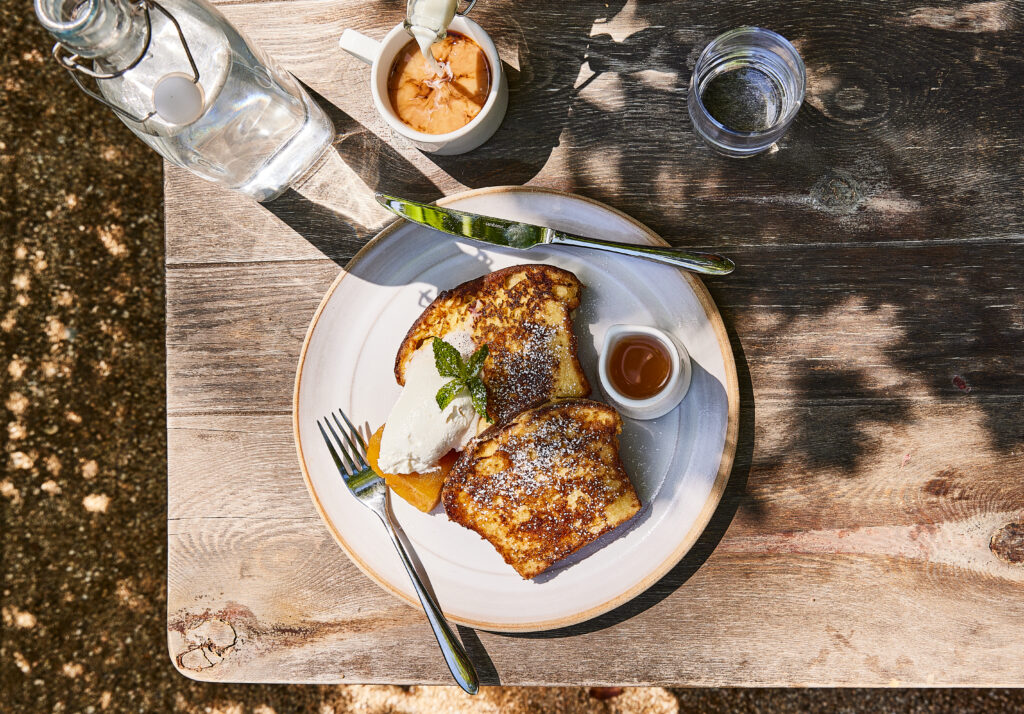Slide 1 of 12
Sustainability comes naturally at Farmhouse Inn in Forestville. "There was no aha moment where we declared 'we need to be more sustainable,'" says managing partner Joe Bartolomei. "A lot of our [sustainable] initiatives, we were already doing because it always just felt like the right thing to do." (Courtesy photo)
Slide 2 of 12
Sister-and-brother team, Catherine and Joe Bartolomei are owners of Farmhouse Inn in Forestville. (Charlie Gesell)
Slide 3 of 12
Two years ago, Farmhouse Inn replaced plastic water bottles in its guest rooms with re-usable glass bottles. As a result, consumption of single-use plastic water bottles dropped dramatically. The property estimates that, on a monthly basis, the number of plastic water bottles eliminated is in the thousands. (Courtesy photo)
Slide 4 of 12
Guest room toiletries from Sumbody in Sebastopol, a producer of handmade, natural and organic skincare products, are provided in refillable containers at Farmhouse Inn in Forestville. (Courtesy photo)
Slide 5 of 12
About a year and a half ago, Farmhouse Inn further reduced its carbon footprint by installing a water purification system in the restaurant and phasing out imported, bottled water. (Charlie Gesell)
Slide 6 of 12
Instead of ending up in the trash, kitchen waste from the restaurant is used to feed the Farmhouse Inn hens (there’s about 80 of them!) as well as other animals, including pigs, lambs, and turkeys that Joe Bartolomei raises on his nearby farm. (Courtesy photo)
Slide 7 of 12
Eggs and meats are then used in the Farmhouse Inn restaurant. (Courtesy photo)
Slide 8 of 12
"My family has been farming the same land for over 100 years. That means you can’t just be in the moment, you have to think about best farming practices to keep the soil fertile and the crop healthy, and sometimes that takes a little more work," says Joe Bartolomei. "It’s our obligation to apply this same ethic to our everyday life. It’s the right thing to do." (Courtesy photo)
Slide 9 of 12
Compostable kitchen scraps from the restaurant are used in the vegetable garden at Joe Bartolomei’s farm. (Courtesy photo)
Slide 10 of 12
Harvested vegetables and herbs are then put to use in the restaurant, eliminating not only shipping but all the plastic packaging that typically comes along with it. (Charlie Gesell)
Slide 11 of 12
Whenever possible, Farmhouse Inn sources food locally from ethical and sustainable producers. (Charlie Gesell)
Slide 12 of 12
"Oftentimes, people think that being sustainable means they have to make big compromises. It’s easy to make small changes that have a big impact," says Joe Bartolomei. "Get a reusable water bottle, buy local when you’re in the grocery store, swap out your incandescent light bulbs for LED. Just be mindful. You can have a big impact." 7871 River Road, Forestville, 707-887-3300, farmhouseinn.com (Courtesy photo)
